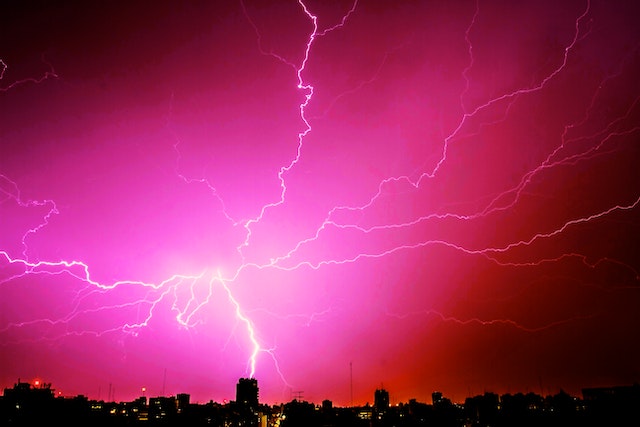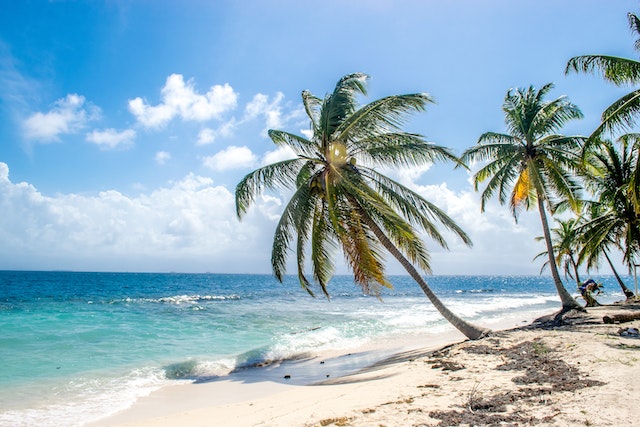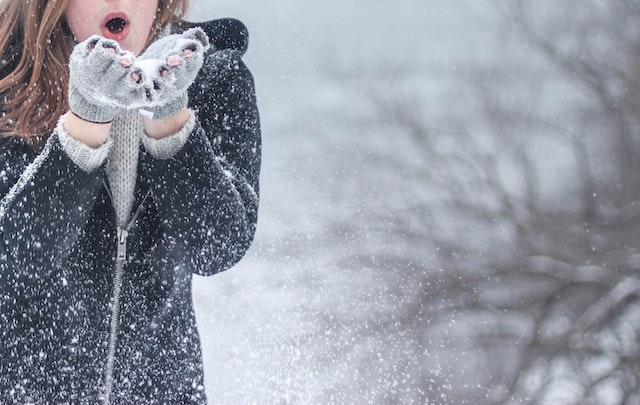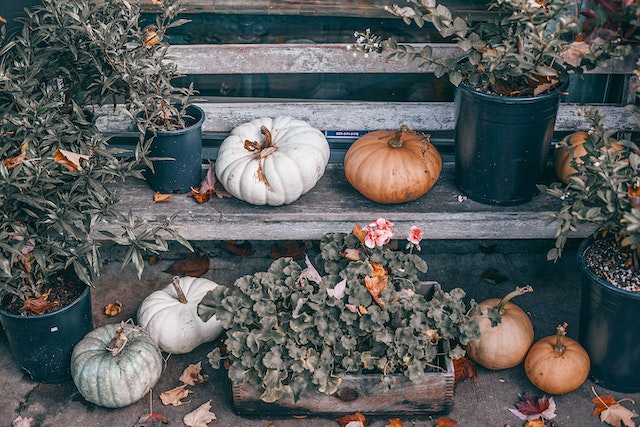Written by: Olivera Tolimir
We all know the go-to topic for small talk, don’t we? It’s the weather, of course! It’s neutral, impossible to get offended about, and it’s a matter where most people will agree.
If it’s boiling hot and you complain about it, there’s little chance the other person will disagree by saying, “What are you talking about? I looove this weather!”
Small talk is one of the crucial parts of all Serbian lessons for foreigners. In most textbooks, learning languages and nationalities is one of the first Serbian lessons. For foreigners trying to communicate, though, this isn’t very useful. Of course, you should know to say where you’re from and what languages you speak.
But is it necessary to memorize the names of thirty different nationalities before you learn to say, “It’s raining”? No, learning to make small talk will be of greater significance to you.
So, let’s talk about the weather together!

Talking about the Current Weather
#1 Kakvo je vreme (napolju)?
What’s the weather like (outside)?
- vreme = weather
It doesn’t seem logical to add the word “outside” when asking about the weather. Clearly, no one is asking for the indoor circumstances. But we often use it, so don’t be surprised if you hear it!
In the following few examples, you’ll learn to answer this question.
#2 Sija sunce. / Sunčano je.
The sun is shining. / It’s sunny.
- sunce = sun
- sunčano = sunny
#3 Grmi i seva.
There’s thunder and lightning.
#4 Duva vetar. / Vetrovito je.
The wind is blowing. / It’s windy.
Vetar = wind
Vetrovito = windy
#5 Pirka vetar.
There’s a gentle breeze.
#6 Pada kiša. / Kišovito je.
The rain is pouring. / It’s rainy.
- kiša = rain
- kišovito = rainy
#7 Izgleda da će kiša.
It looks like rain.
We use this expression when the weather is gloomy and we expect rain to start any moment.
#8 Pada grad. / Pada led.
The hail is falling.
- grad = hail
- led = ice
#9 Tmurno je. / Oblačno je.
It’s gloomy. / It’s cloudy.
- oblak = cloud
- oblačno = cloudy
#10 Pljušti kiša! / Lije kao iz kabla!
The rain is pouring! / It’s raining cats and dogs!
#11 Približava se oluja.
A storm is approaching.

#12 Uh, kako je sparno!
Ugh, the weather is so muggy!
We use the word “sparno” to describe an unpleasant combination of humid and hot weather. It’s the worst!
#13 Pretoplo je. / Jako je vruće.
It’s too warm. / It’s so hot.
- toplo = warm
- pretoplo = too warm
- vruće = hot
#14 Baš je prijatno vreme. / Baš je lepo vreme.
The weather is so nice.
#15 Vreme je savršeno za kupanje.
The weather is perfect for swimming.
Please note that “kupanje” means “bathing”, but we use the word for swimming in a pool, sea, or lake. If you want to use the direct translation of the word “swimming”, say “plivanje”.
Talking about the Weather in General
#16 Kažu da će biti toplije/hladnije nego prošle godine.
They say it will be warmer/colder than last year.
Of course, “they” are meteorologists! Speaking of which, let’s learn some new words:
- meteorolog, pl. meteorolozi = meteorologist, pl. meteorologists
- vremenska prognoza = weather forecast
#17 Zimi nema toliko snega kao ranije.
There isn’t as much snow during winter as before.
Winters in Serbia have become warmer. While the children fifteen years ago could enjoy sledding and snowballing for two months, the situation today is different. We’re happy if we can enjoy a snowy Christmas and a few more days during winter.
Here are some words to help you discuss seasons in Serbian:
- zima = winter
- leto = summer
- jesen = autumn
- proleće = spring.
- godišnje doba = season.

#18 Leta su sve toplija i toplija.
Summers are getting warmer and warmer.
We learned how to complain in winter. Here’s how you’re supposed to do it in summer!
#19 Koje ti je omiljeno godišnje doba?
What’s your favorite season?
Here’s a fun question if you’re making a friend book! Just kidding. Adults usually don’t discuss their favorite seasons, but if you’re stuck waiting for a bus with an acquaintance, try it. Maybe they have a particular hatred for summer’s high temperature, so you’ll avoid awkward silence!
#20 Da li više voliš toplo ili hladno vreme?
Here’s another friend book question. But it can lead to some interesting facts about your interlocutor. For example, they may share they faint when the weather is too hot, so they prefer winter. Or they had a traumatic sledding accident, so they’re a total summer person!
#21 Kakva je klima u tvojoj zemlji?
What’s the climate like in your country?
Here’s a great way to learn something new from your foreign friend!
- Klima = climate
#22 Kako podnosiš ovo vreme?
How do you handle this weather?
It’s a great question to feel instantly connected to the other person no matter if it’s too hot or cold. Or maybe rainy. People like to lament over rough weather.

Serbian Lessons for Foreigners: Conversation Example
A: Zdravo, kako podnosiš ovo vreme? (Hi, how are you handling this weather?)
B: Ne pitaj. Ne volim leto. (Don’t ask. I don’t like summer.)
A: Znači, više voliš hladno nego toplo vreme. (So, you prefer cold to warm weather.)
B: Da. Čim temperatura pređe 30 stepeni, trudim se da ne izlazim iz kuće. (Yes. As soon as the temperature is over 30 degrees, I try not to go out of the house.)
A: Ha-ha. Ja sam drugačiji. Bilo bi lepo da malo pirka vetar, ali ipak više volim leto od zime. (Haha. I’m different. It would be nice to have a breeze, but I prefer summer to winter.)
Summary
Now that you’ve learned all about discussing the weather, can you try describing the climate in your country in Serbian? What kind of weather do you prefer?
Do you like our Serbian lessons for foreigners? If you’d like to learn more about making small talk in Serbian, choose one of our awesome Serbian teachers and book your first Serbian lesson!



